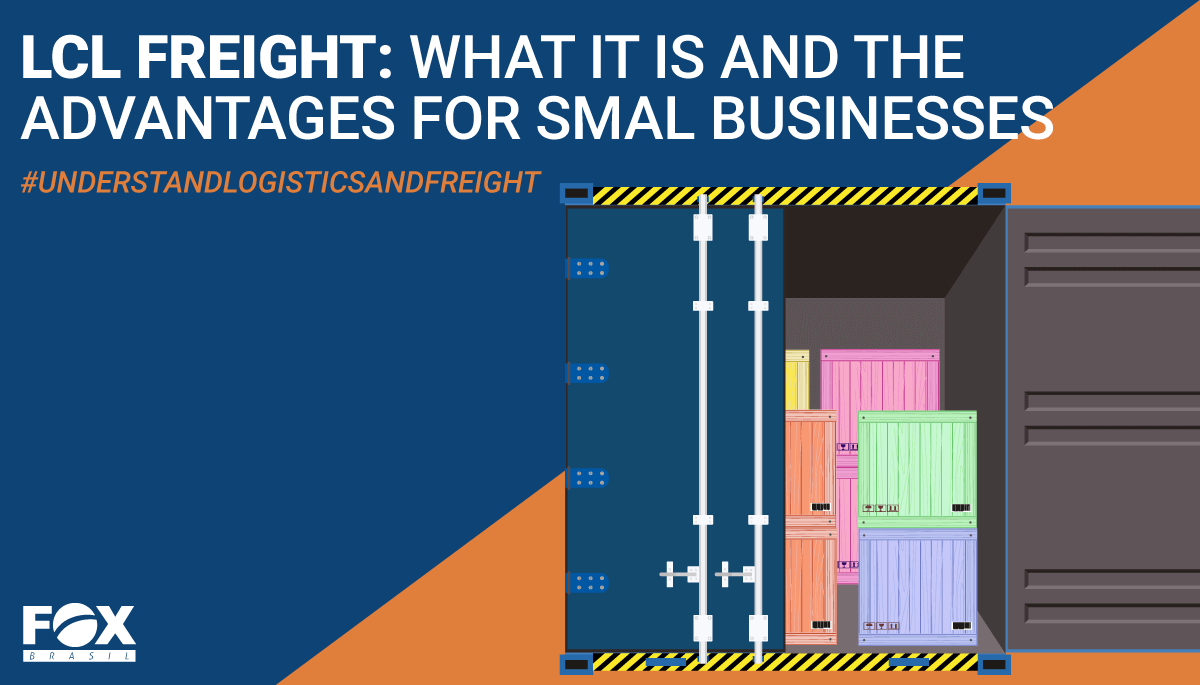LCL Freight: What it is and the advantages for small businesses

Understand Logistics & Freight
LCL freight is an accessible and flexible solution for small businesses looking to export or import their products. By sharing the space of a container with other companies, it’s possible to reduce costs and optimize logistics.
What is LCL Freight?
LCL stands for “Less than Container Load,” meaning less than a full container load. In this mode, the space inside a container is divided and rented to different companies, which have smaller loads and cannot fill an entire container on their own.
What are the requirements for shipping an LCL cargo?
It’s important to note that the choice between LCL and FCL (Full Container Load) will depend on the volume of the cargo, delivery urgency, available budget, and specific characteristics of each product.
To ship an LCL cargo, it is necessary to meet certain criteria, such as:
- Compatibility: The cargo must be compatible with others that will share the same container. To ensure the safety of all cargo in that space, flammable, corrosive, and hazardous products are generally not accepted in LCL, except in specific cases after detailed analysis, always considering compatibility with other products.
- Weight and Dimensions: Although LCL is more flexible in terms of volume, it is important to be aware of the weight and individual dimension limits of each package to ensure they fit in the container and do not damage other cargo.
What cargo can be transported via LCL?
A wide variety of products can be transported in this modality, as long as they are properly packaged. Some common examples include:
- Electronic products: cell phones, computers, tablets
- Clothing: clothes, shoes, accessories
- Automotive parts
- Sporting goods
- Beauty products
- Toys
- Books and stationery
What cargo cannot be transported via LCL?
Some cargo has restrictions due to safety issues, regulations, or specific characteristics that may pose a risk to the integrity of other cargo. These include:
- Hazardous substances: corrosive, flammable, toxic, or radioactive chemicals
- Bulk cargo: unpackaged products such as grains, minerals, and liquids
- Cargo requiring special transportation conditions: such as refrigerated or frozen products
Why is LCL advantageous for small businesses?
LCL freight offers several advantages for small businesses. By sharing the cost of the container with other companies proportionally to the space occupied, small businesses can significantly reduce logistics costs.
Small businesses can adjust their export or import volumes according to market needs, without the need to commit to an entire container. If their load is still too small for an LCL container, they also have the option to consolidate it with others, making it an even more flexible and cost-effective option.
LCL freight also allows companies to test new markets with small quantities of products, reducing the risk of investing in large volumes.
By working with a freight forwarder, you can have peace of mind knowing that your cargo will be transported safely and efficiently, even when sharing container space with other companies!